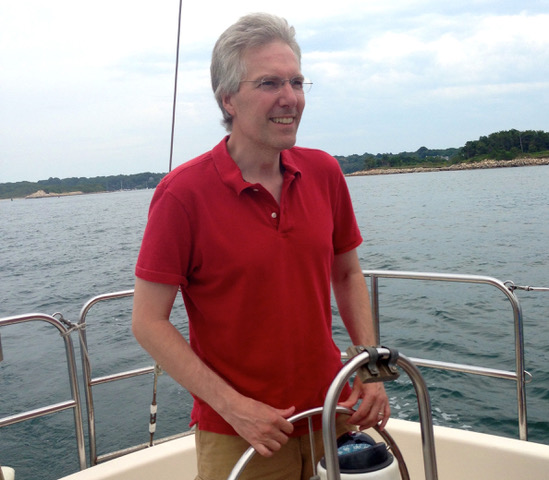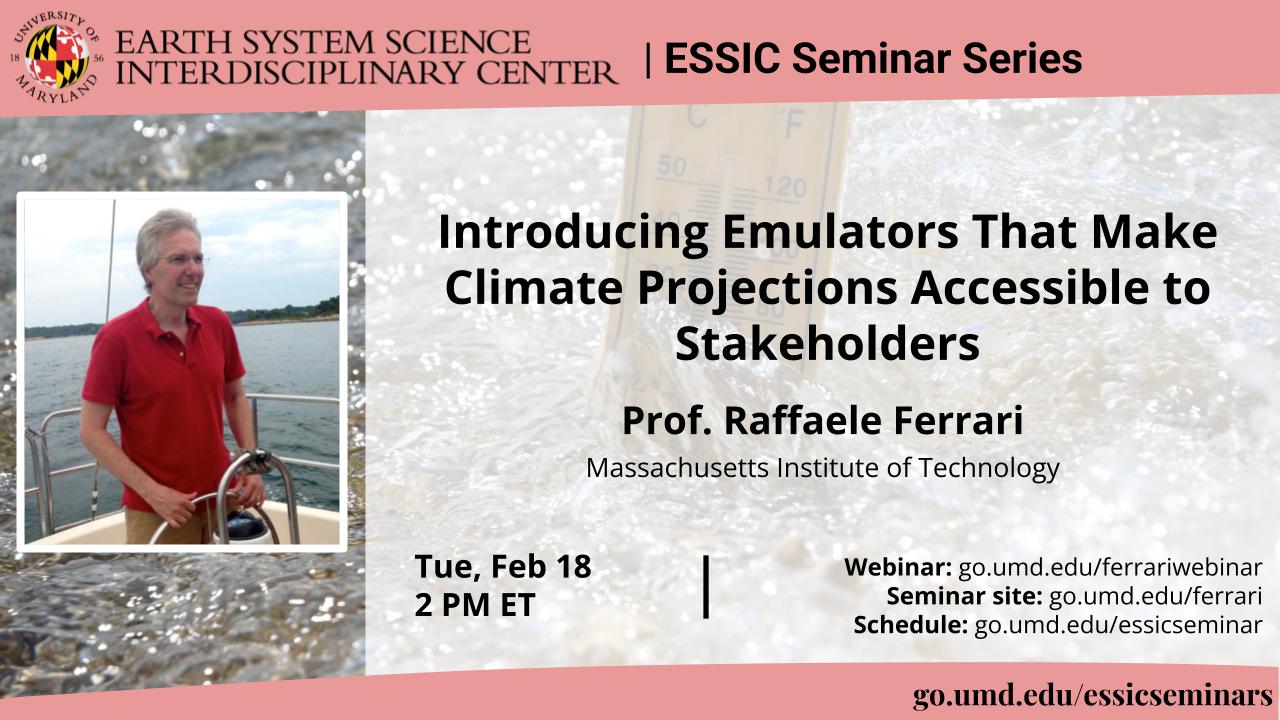
Introducing Emulators That Make Climate Projections Accessible to Stakeholders
Prof. Raffaele Ferrari
Massachusetts Institute of Technology
Tuesday February 18, 2025, 2 PM ET
En-Roads Climate Simulator (link)
Abstract:
Projections about future climate change are essential to develop effective mitigation and adaptation strategies. Presently, simulations generated with Earth System Models (ESMs) provide the most credible information. However, running these models requires massive computational resources and months of simulation time. Just downloading the tens of petabytes of model output is a major barrier for most stakeholders working on mitigation and adaptation. In this presentation, we will introduce cheap and fast emulators of ESMs based on a combination of human and artificial intelligence. The emulators are trained on existing projections generated with ESMs at modeling centers around the globe and project in seconds rather than months how climate variables of interest will evolve in response to arbitrary emission scenarios. The emulators we will introduce are based on Gaussian processes and generative diffusion models to capture the evolution of the whole distribution of climate variables at a regional scale, like surface temperature, relative humidity, or precipitation for a particular city. The probabilistic approach is crucial to capture the changes in extreme weather events, which sit in the tails of the distributions., but dominate the cost and risk to society. Finally, we will demonstrate a simple interactive interface based on our emulators that allows users to explore future climate scenarios in response to emission projections made by the user.
Biosketch:
Prof. Ferrari is the Cecil and Ida Green Professor of Oceanography at MIT and the co-director of the MIT Lorenz Center. His group studies the role of the ocean in climate. They have published extensively on turbulence in the ocean and atmosphere, the impact of ocean turbulence on marine biology and the carbon cycle, and the role of the ocean in present, past, and future climates. Currently, he is co-principal investigator on two ambitious projects that are building new, higher-resolution climate modeling tools: the Climate Modeling Alliance (CliMA), co-led with Caltech Professor Tapio Schneider, is a Caltech-JPL-MIT collaboration to develop a next-generation climate model that leverages AI tools to learn from observations; and Bringing Computation to the Climate Challenge, co-led with MIT Professor Noelle Selin, is an MIT Climate Grand Challenges project aimed at developing fast emulators of full climate models to democratize access to climate information. Prof. Ferrari got his PhD from the Scripps Institution of Oceanography.
Webinar:
Event site: https://go.umd.edu/ferrari
Zoom Webinar: https://go.umd.edu/ferrariwebinar
Zoom Meeting ID: 944 6107 1202
Zoom password: essic
US Toll: +13017158592
Global call-in numbers: https://umd.zoom.us/u/aMElEpvNu
For IT assistance:
Cazzy Medley: cazzy@umd.edu
Resources:
Seminar schedule & archive: https://go.umd.edu/essicseminar
Seminar Google calendar: https://go.umd.edu/essicseminarcalendar
Seminar recordings on Youtube: https://www.youtube.com/user/ESSICUMD

